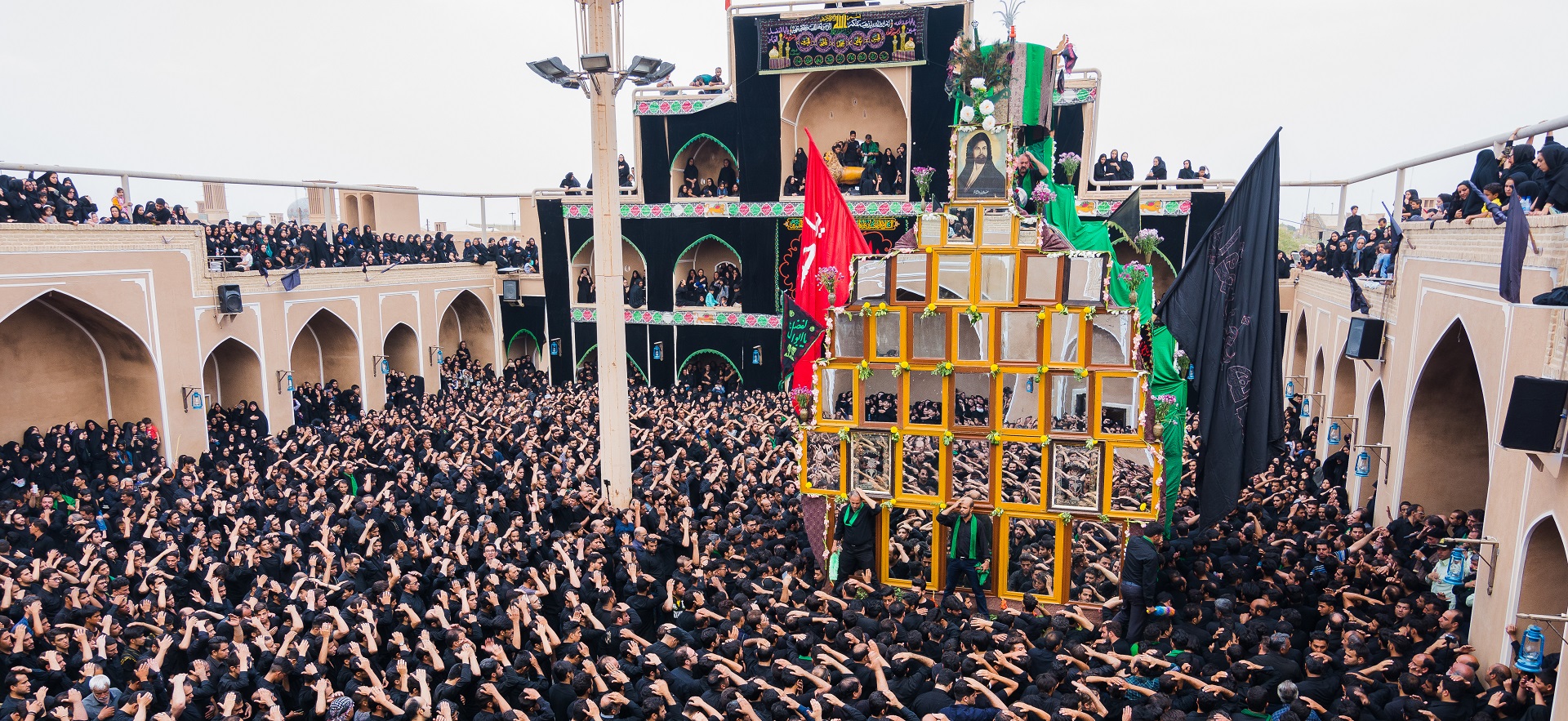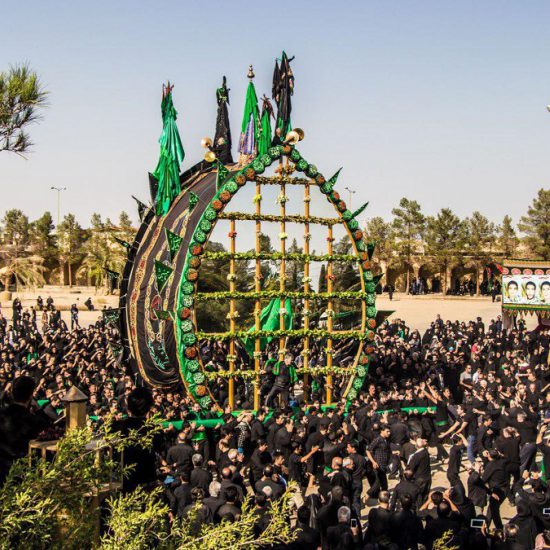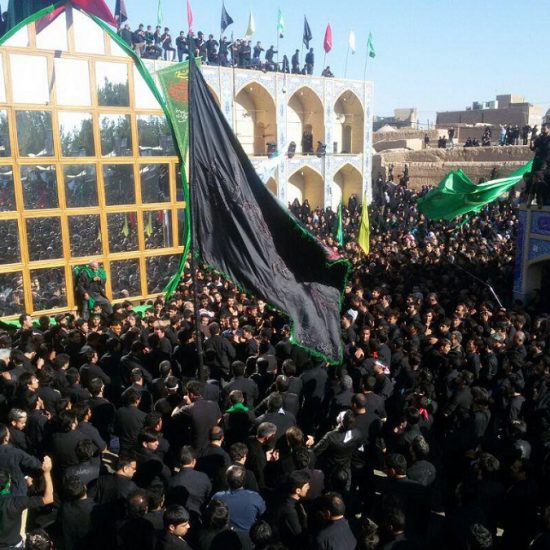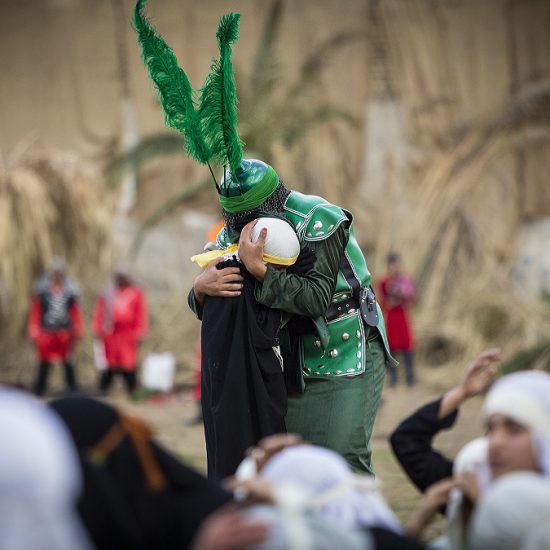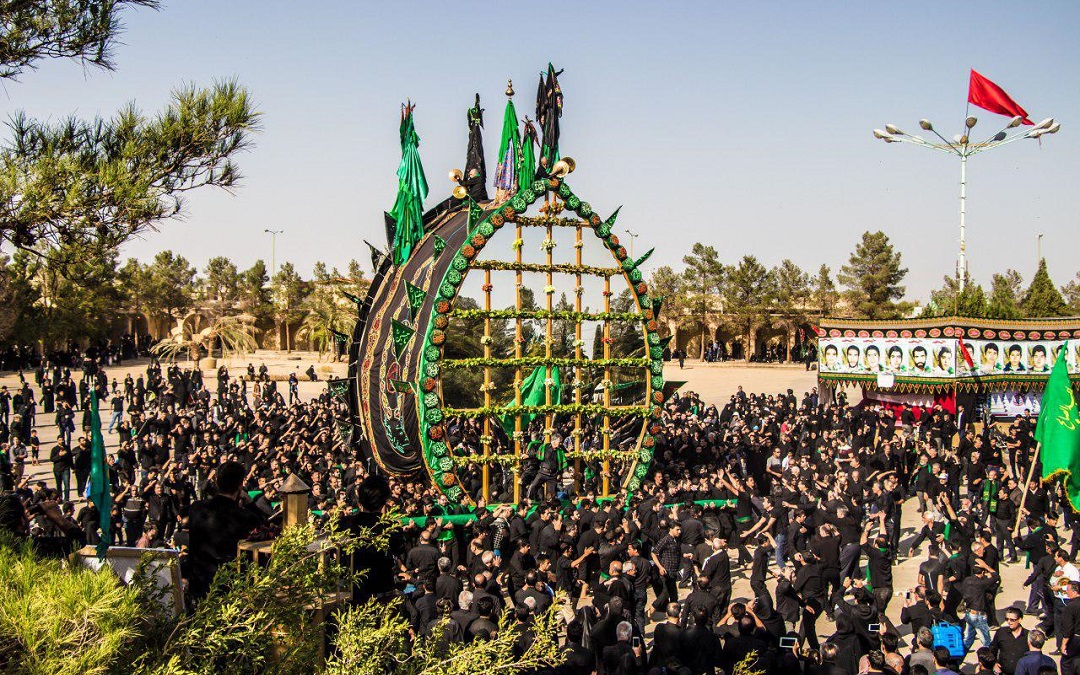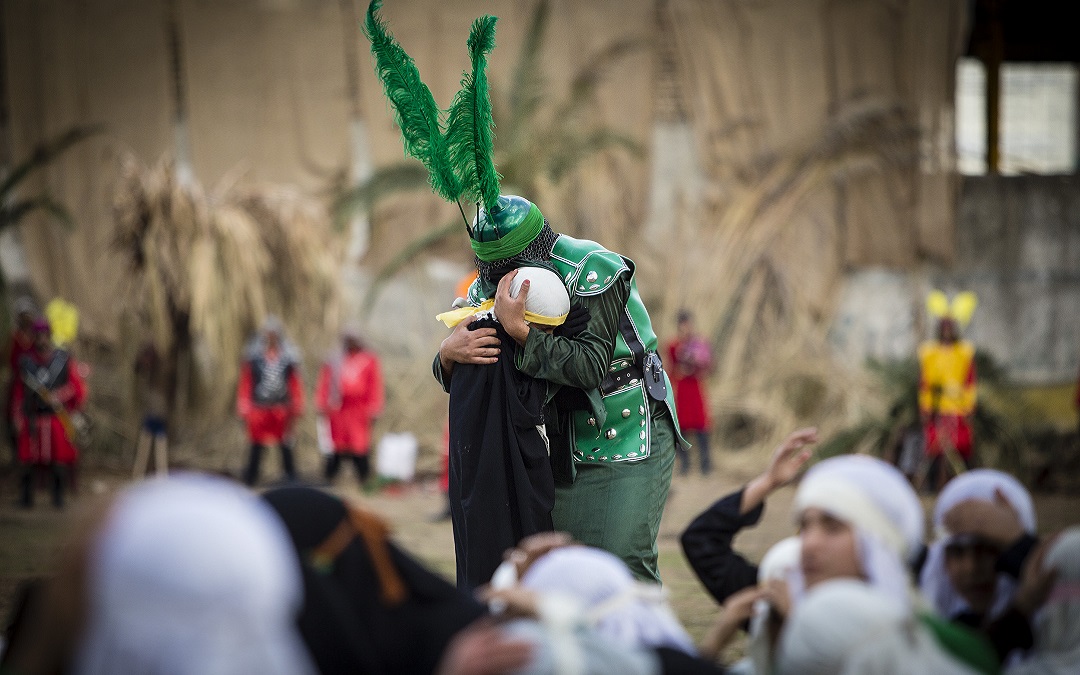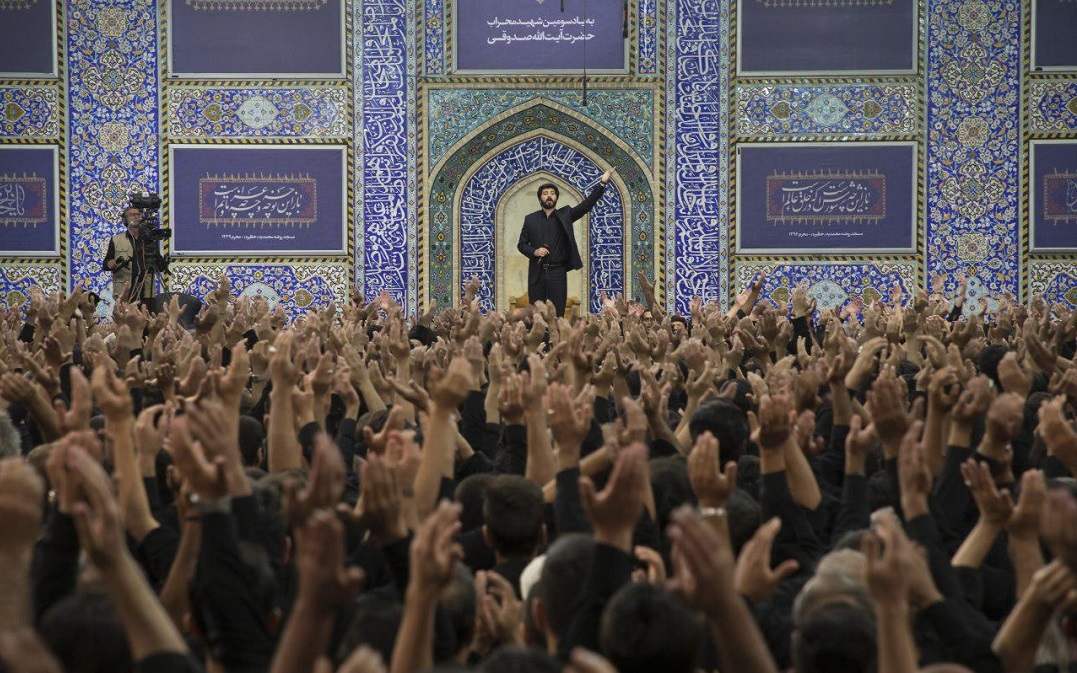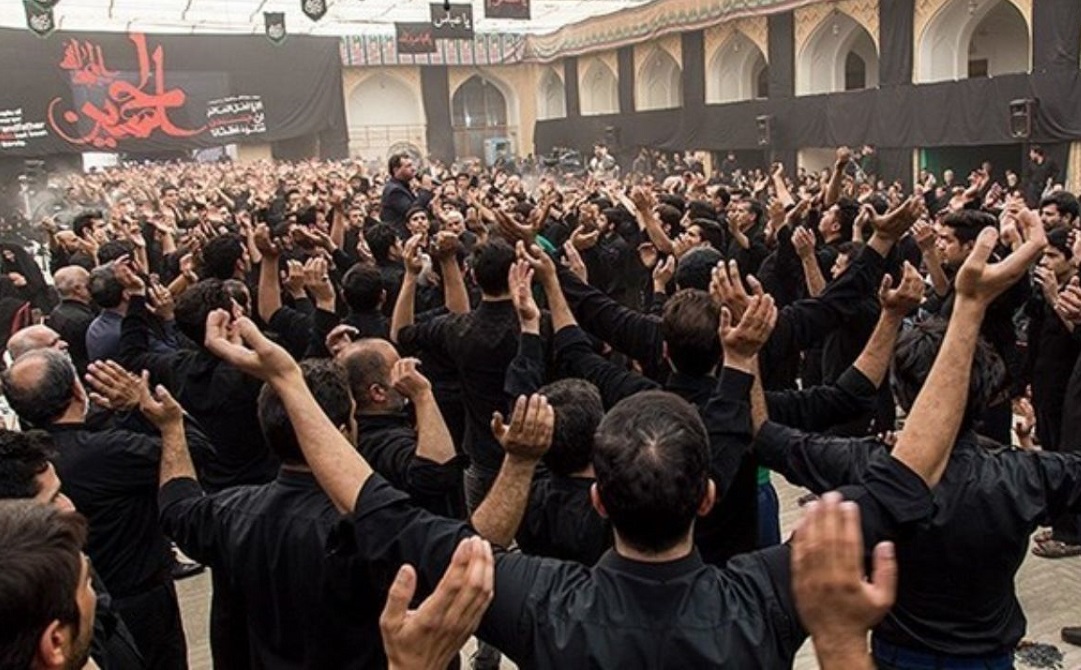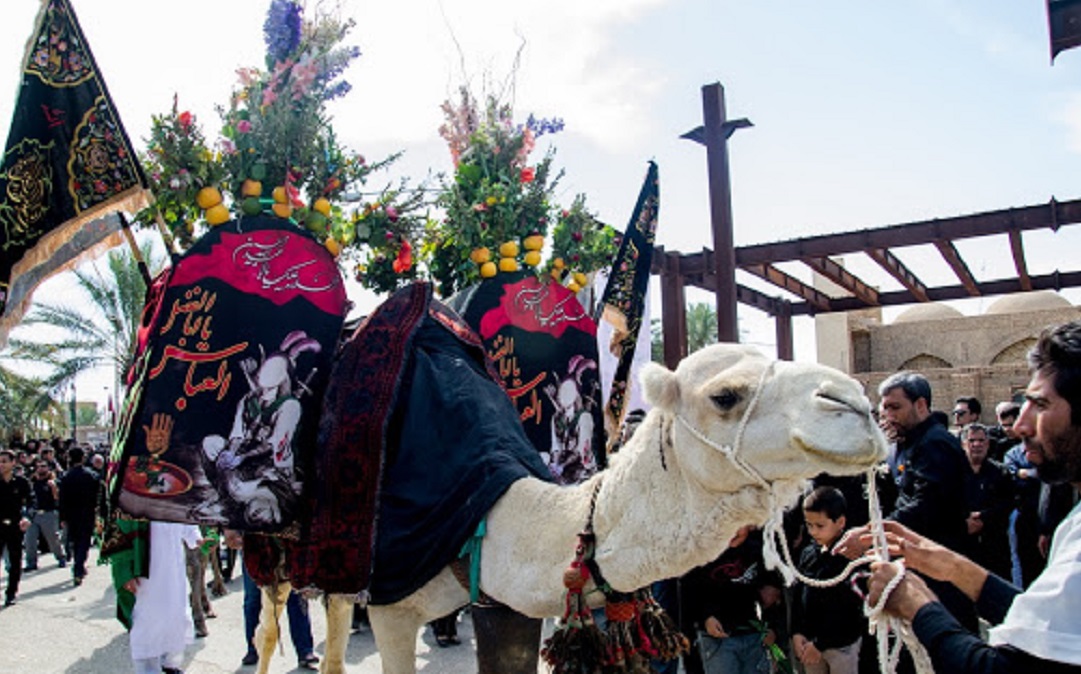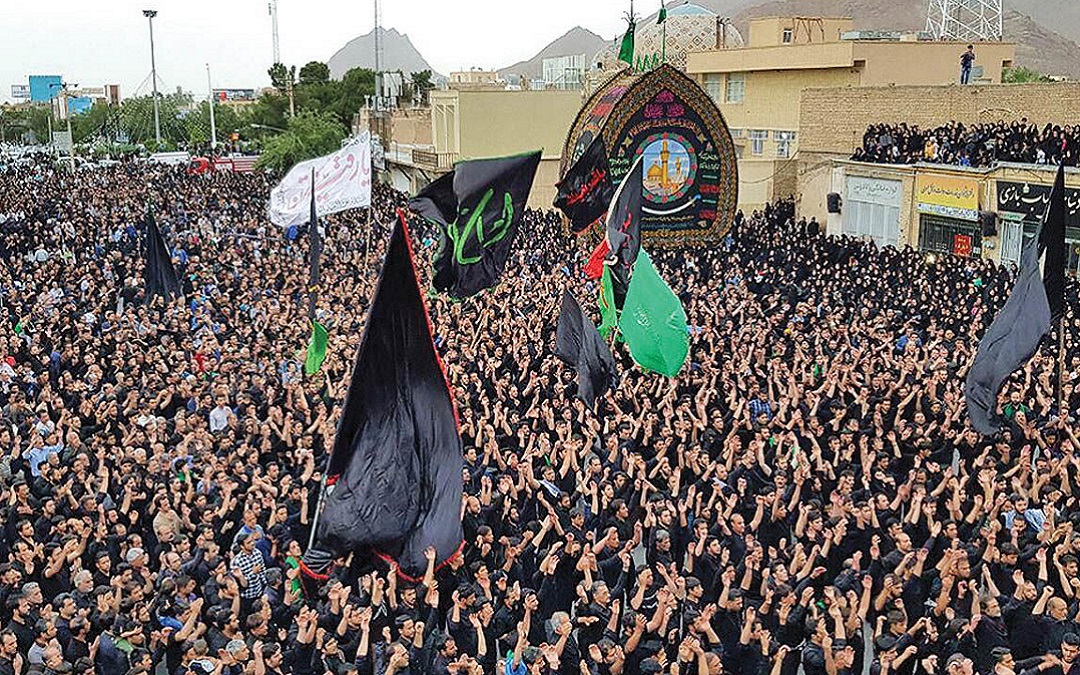Ashura Day in Yazd
Standing shoulder to shoulder with Iranian Muslims dressed in black clothes on the 10th day of the 1st month of Islamic calendar, Ashura Day, will be an amazing way to get a genuine awareness of Shia Islam. With must-see rituals existing on every corner on this special day, you will be transferred to the heart of the Shia identity. Participate in an Ashura ceremony in Yazd and get the chance to see the particular rituals of the city you are in, rituals like impressive street processions, Ta’zieh (theatrical reenactment of the event) or Nakhl Gardani (carrying a scaffold shaped like a cypress tree, symbolizing Husayn Ibn Ali’s coffin).
Note: The date of Ashura day shifts on the international Gregorian calendar each year. So, you need to check the date with us in advance. Ashura Day was on August 30 in 2020 and will be on August 18 in 2021.
Learning about this Historical Event
In the heat of the ceremony, your guide will tell you the story of the Imam’s brave opposition to corruption and how this resistance turned into such a glorious tragedy more than 1300 years ago on this day. Understanding this epic aspect of Islam from inside will present you with a more genuine perspective of not just the religion but also the regional folklore of Iran.
Learning about the Rituals of Mourning
Together, we’ll have a first-hand experience of the cultural outcome of the Iranians’ integration of their cultural identity with this historical event. Whether in an impressive street procession, a Nakhl Gardani (carrying a scaffold shaped like a cypress tree, symbolizing the great martyr’s coffin), a Ta’zieh (theatrical reenactment of the event, listed as a national heritage), or in an indoor ceremony, you’ve got the chance to be introduced to some of the rituals: black clothing, singing, weeping, use of musical instruments, chest beating, shoulder beating with chains or Nazri (sacred free food distributed among mourners).
Participation in AShura Day ceremony
Children carrying Alams (flags as symbols of truth and bravery), streets decorated with red and black flags and hearing lamenting music on every corner are the usual spectacles of Ashura day. In midday when the tragedy happened, we can see the climax of the passion and splendor of the mourning processions or groups. Being part of the elegant moment of honoring the greatness of such a righteous hero connects you to the Shia roots of present-day Iran.
Tasting special Nazri food among locals (not guaranteed)
Cooked specially for religious occasions, Nazri food is considered sacred among Iranians. Sometimes purely for the love of the ‘the prince of martyrs’ and sometimes with the belief that feeding the mourners of Ashura will make your wishes come true, people gather together to help cook Nazri. Tasting delicious Nazri food in the company of the warm people will be a pleasant experience of the genuine culture of Iran. Available on: August 30th

